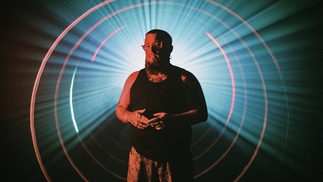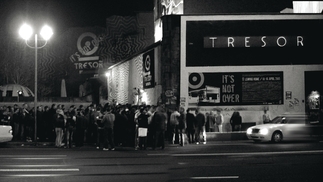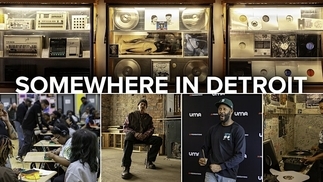TECHNO SPACE-TIME CONTINUUM
Timeline and the next generation of talent from Underground Resistance
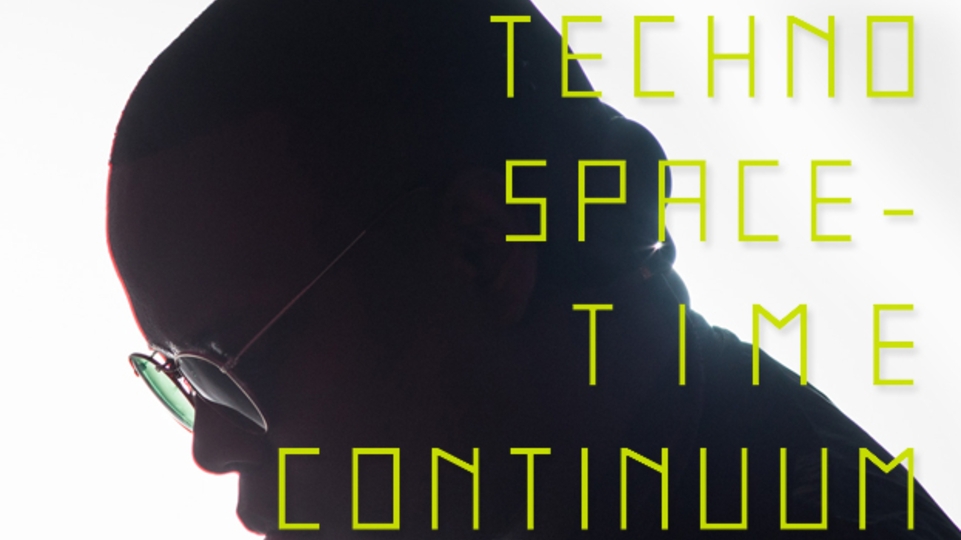
Debuting the latest incarnation of their ever-evolving live show at this year's Movement festival, Timeline is the next generation of talent from Underground Resistance – the Detroit techno collective whose fierce independent spirit and musical skill has carried on the hi-tech soul of the city's originators. With three new labels showcasing the depth of their versatile sound, we caught up with Timeline at UR's Submerge home to connect the dots...
The word “underground” gets waved about plenty with all the verve and patriotism of the Stars and Stripes. As the battleground of mainstream electronic music is drawn up in a bid to see who can grab the most riches out of its overflowing coffers, it's the yin to big room's yang, two interconnected scenes fighting for viability. While this version of “underground” is often in public dispute with it's main stage rival though, it's really the flip side of the same coin, an heir in waiting riddled with the same potential genetic defects of ego and untruth - the hazy world of ghost writers, hype and commercial ambition that thrives in the shadow of major label money.
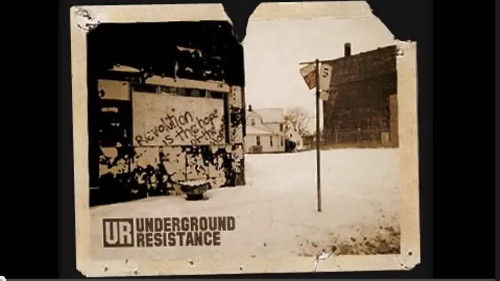
Some players are in a different game altogether. In the context of today's moral conduct, the name Underground Resistance sounds like hyperbole, more grandstanding and posturing. Yet it's a label, a sound and an ethos that has stood its ground against such forces by planting its roots deep into history. The history of black America. The history of Detroit. The history of techno.
This temporally aware mindset is deliberately evoked in the title of their live Timeline show, the latest UR project: masterminded by “Mad” Mike Banks, who founded the label/ever unfolding collective in the late '80s with Detroit techno legend Jeff Mills, but now equally indebted to UR stalwart Mark Flash (DJ/percussion) and newest recruits Jon Dixon (keys) and De'Sean Jones (saxophone).
With its explicit connotations of guerrilla warfare, UR has avoided the politics of the mainstream music industry and press, rarely granting interviews, and often appearing in photos and at shows with their faces shrouded by balaclavas. But helmed by the burning intensity of Banks, they've built a globally admired sound out of pure talent and dogged self-determination, raw analog machine music fusing with Detroit's depth of skilled musicianship.
SUBMERGE
Head to UR's base on East Grand Blvd. and you get a glimpse into their history at Submerge. Looking like an ordinary suburban house from the outside, it's home to a record shop and distributor, recording studios and the world's only techno museum. Here they pay open homage to the artists and elements, which helped inspire their own journey; The Electrifying Mojo, Kraftwerk, Public Enemy, Funkadelic, Detroit's history as a recruiting ground for the military.
It's a living testament to UR's sometimes under recognized influence in the history of Detroit. Walk around and you can see early records that Submerge distributed from J. Dilla and Kenny Dixon Jr. (aka Moodymann), drum machines and synthesizers used on defining UR tracks such as “Final Frontier” and “Journey of the Dragons,” even the lathe used to make most of their records – given to them after Ron Murphy, who mastered and cut Detroit's most famous releases, died in 2007.
Mike Banks is elusive as ever when we meet Timeline a couple of days after their headlining show at Movement Electronic Music Festival's opening Saturday night (see On the Floor for DJ Mag's review of the festival). Having met the previous year in Submerge's record store, and been turned down for an interview pending new material, this year he greets us on the steps of the shop with his family. But he leaves before the interview with Flash, Dixon and Jones. It could be the late hour we're arranged to meet, but it seems more like a calculated move to focus the attention on UR's new breed, to whom Mike is passing on the baton.
Gathered upstairs in a plain meeting room, there's none of the doom mongering about Detroit here that the US media likes to portray. “This is a good place for it right now,” opinions Jones, the youngest and most outspoken of the group, hence the nickname Baby D. “You see a lot of transplants coming in trying to do things, as opposed to going to LA or New York where you're spending two mortgages for an apartment. Here you can get a house.”
JAZZ
Indeed, it's a drive for creativity, for rebirth and an abandoning of the old order in favor of something new that proves to be the underlying thread in Timeline, both musically and beyond. And where else to start than by returning to jazz? A musical art form based around knowing the rules and then breaking them.
“You can't be in this band if you don't have a sense of humor,” Dixon, the softly spoken band leader, chuckles as Jones starts out on the origins of the current line-up, and indeed the amount of belly laughs throughout shows another side to UR beyond their militaristic exterior.
“I remember this evening like it was yesterday,” deadpans Jones, his story telling as natural as his sax playing appears when he's prowling the stage. Appearing one night in 2007 at his residency at Cliff Bell's, a renowned jazz spot near the Fox Theatre, “There was this gentleman standing in the audience [the others laugh], and I emphasis gentleman. We locked eyes while I was playing.”
This turned out to be UR manager and member Cornelius Harris, who was there for the leaving party of Clark Warner and his wife Liz Copeland, the couple departing Richie Hawtin's M-nus and moving to Denver to work at Beatport (“What a way to be sent off,” chimes Jones, unable to resist, “at my show!”). Handing over his business card - “It was a white card, generic,” Jones notes to more laughter – Harris asked if he liked experimental music and invited him down to Submerge a few days later.
“The thing about this city is, everyone has talent,” carries on Jones, who just 18 at the time was doubtful of anything coming from this, deciding to take up the offer to call Harris' bluff. “That's not the problem. Everyone's hustling...”
“That is the talent!” chips in Flash to yet more laughter. The eldest of the crew, he's also the longest standing UR recruit, brought onboard by DJ Rolando (author of UR's biggest breakout hit “Knights of the Jaguar”) in the early '90s.
Arriving at Submerge, sax in hand a few days later, Jones was confronted by a man in a baseball cap. “He was like, 'Play something.' And I do a warm-up scale [sings it]. And he was like, 'Alright, put it away.' I played my horn for like two seconds, I put it away. Then I get this very eloquent introduction to UR. Basically, he says, 'If you like making good music, if you like traveling, you know, doing these different things, then this is for you. Do you have a passport?' I was like, 'Yeah.' He was like, 'If you don't, you can get the fuck on and go home.' I was like, 'OK, I have my passport.' He said, 'We're leaving for Switzerland in two weeks.'”
The man in the baseball cap was Mike Banks and two weeks later, true to his word, Jones was on tour.
GALAXY II GALAXY
“When De'Sean called me I was at a sound check,” says Dixon, who was next on Banks' hit list after he asked Jones if he knew a keys player. Having not heard of Galaxy II Galaxy, another of UR's live ventures, which the duo originally joined, or indeed Underground Resistance, he was also undeniably skeptical when Jones - who's “like a little brother to me” - started talking about trips abroad. Cue another conversation with the man in the baseball cap. “'Hello, is this Jon?'” Dixon says, remembering the call. “'Yeah.' 'If you want to travel and get paid doing it playing music, then come by the building Monday at three. If not, get the fuck on. Are you down?'”
“I had one too!” laughs Flash, another graduate of UR's bullshit free recruitment process.
So it was that Dixon and Jones made their debut in Montreux, Switzerland, rather fittingly at Miles Davis Hall. If this sounds sudden, then it's because Galaxy II Galaxy's oeuvre is hi-tech jazz, a fusion of techno and jazz – and while the pair were yet to be schooled in the former – they'd previously been well mentored in the latter by Marcus Belgrave, the godfather of Detroit jazz.
“That man took us aside and really showed us the ropes of how to make music,” explains an impassioned Jones, citing other Belgrave alumnae such as James and Regina Carter, Kenny Garrett and Karriem Riggins. “The biggest name he worked with was Ray Charles, for a considerable amount of time, but essentially that was my introduction to music and how to make it.”
If this sounds a far cry from the metronomic dancefloor drive of techno, then Mark Flash – the group's DJ and percussionist - has that corner covered. A DJ from the age of 13, he started out mixing disco with tracks such as “Planet Rock” from the nascent sound of electro. But it was the influence of his father, a gigging musician who moved to Detroit in pursuit of playing for Motown, transforming the family living room into a rehearsal studio that was to shape Flash's own conception of how electronic music could be presented.
“When I got older and was DJing at the house, playing music, he was the one that told me you should incorporate things,” he explains. “'What are they using now?' I was like, 'Drum machines or whatever.' So he got me a 909. I used to mix with a 909, trying to expand my sound and put myself different from the rest of the DJs that were in my neighborhood. I don't know any other neighborhoods in Detroit that had more DJs than we had. There was a DJ on nearly every block. You had big blocks [in] South West Detroit.”
TIMELINE
Timeline formed in 2010, after Banks – who had already promoted Dixon to the leader of Galaxy II Galaxy – told me that it was time for him to start producing and putting out music. Described, it sounds like the culmination of an unofficial apprenticeship, the second generation of techno passing on the mantle to the third. “Watching him in the studio, working with him in the studio, different things that he taught me, he never shows you how to do it but he shows you things that you can use,” outlines Dixon. “And that's really, really beneficial because you have to have your own understanding, and your own sound and your own voice. If you don't have it, you wouldn't even be having that conversation.”
The result of this was Timeline's debut EP, 2011's “Ghost of Grey Stone.” With Timeline's live show drawing from disco, house, techno and jazz, sometimes mixing elements of all four, sometimes breaking down into beatless improvisation, this EP was the first snapshot of their sound. “Black Bottom Stomp” is all jittery percussion and sax and “Lottie the Body” rolls out over tight disco licks, while “Save the Bluebird,” a tribute to Detroit jazz venue the Blue Bird Inn, crackles with an impassioned melancholy that also echoes through the title track.
Coming next is the group's “Conscious Dream” EP, which features the emphatically named “Next Step Forward,” a nine-minute epic. “You can dance to it [and] it breaks the rules of jazz, which is what we were taught to unlearn - all the things we learnt at school for the last twenty years - to make this music,” emphasizes Dixon on the on-going journey that being part of UR has taken them on. “To make it simpler, but to make it where those of us who are musicians can still appreciate the musicality of it.”
MUSICALITY
It's this melding of hard studied knowledge and technological futurism that marks out Timeline as such a unique force, able to jam out the jazz, or sample their own playing and incorporate it with the kind of analog emotion that was born from the Motor City. It's a reconnection of electronic dance music with its live played roots, the session musicians of disco or Motown, whose original Hitsville USA home is just a few blocks down the road.
“I think what we want to get back to is a certain level of appreciation for artistry and skill,” says Jones with a sudden earnestness, going on to place techno on a continuum that includes gospel and jazz, and praising the level of playing that still exists within the church. “Because, to be a part of music, you don't have to be a music genius or study at a conservatory, or anything like that. But if you're going to present it, I think it's important to know what you're doing. Like, if I'm going to be a doctor and I catch myself operating on somebody, I better know what I'm doing. Just because you wear scrubs, doesn't make you qualified to be at the operating table. You got a lot of people wearing scrubs who are not qualified.”
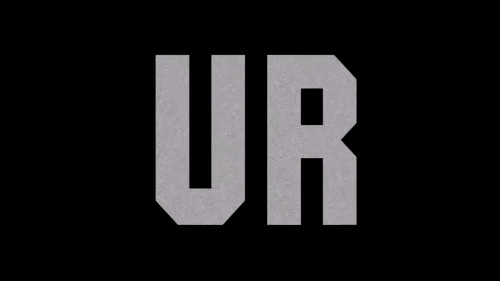
“One of the great things about this group is that we're musicians,” joins in Dixon, “and as musicians we hate...” (“Hate is a strong word,” interjects Jones.) “Not hate, we refuse to get to that point where we're satisfied. So there's always something to improve, always some scale or some theoretical approach to something, to improvisation, to chord structure, that we can learn.”
“This is a lifelong study, there's no shortcuts,” Jones concludes, the subject having stirred something at the heart of what Timeline is about.
It's this constant mind expansion, and willingness to subvert, twist and even ignore their learning, that sets them aside from the wider world of EDM, and indeed much of the self-proclaimed world of “underground” house and techno.
“If someone was to challenge us to produce that style of music, or come out with a series of EPs in that style of music, easy. Play a 12 bar blues, play a C major scale. Do an entire set without using the transpose button,” says Jones. “It just goes back to knowing what you're doing.”
This mindset is what they bring to the tools of techno, allowing their musical ears to meld with the processing power of a modern studio. “You really have to think, if John Coltrane or Bird Peterson had access to Moogs and Ableton and peddle effects now, what would they use with it?” posits Dixon.
Despite all this skill, an all out assault of freeform jazz is unlikely to win over more than a niche audience, something Jones frankly acknowledges. “The truth of the matter is that people aren't listening to classical or jazz or art music in general.” Indeed, the ultimate judgment of Timelines is not the talk they talk, but, as with UR, the resonance of the music that they put out.
NEW LABELS
Such is the versatility of the project, which promises no two shows will ever be the same (“What if we pull the Miles Davis, and only play one note and turn our back to the audience?” says Jones as he runs wild with the possibilities), their output is going to be spread across three labels, one for each member. Jones has Nomadic Records, focusing on the “live band kind of element,” Dixon has 4ever 4ward, a more electronic venture, which is home to their new EP, and Flash has Detroit Digital, a place for “all the resident knowledge I've gained throughout the years.”
It would be easy to regard Timeline as an anomaly from the wider world of electronic music. Yet they seem, instead, like the tip of an iceberg threatening to puncture an overloaded culture steaming blindly ahead. For a start, beneath the media shit storm around Detroit's economy, at ground level there actually seems to be a renaissance in full swing. From its flourishing Eastern Market to the state of health of the arts scene, there's a revitalized energy coursing through its veins. In the words of one of the sayings you'll encounter amongst the city's inhabitants, tough times don't last, tough people do. “We only want to break down the barriers,” says Jones at one point. “Open your eyes to the great possibilities of collaboration and creativity.”
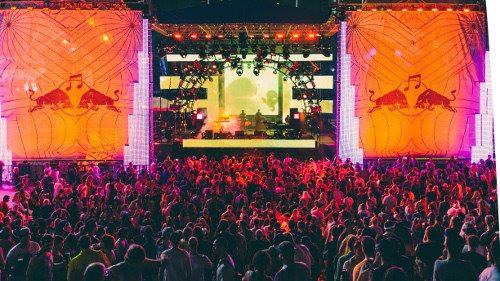
And their enthusiasm for pruning things back to the roots from which Detroit's rich cultural history sprang – this is a city which still has an opera house and a symphony orchestra – is spreading to other electronic artists looking to follow their lead. “Over the past year and a half, two good friends of mine, Kyle Hall and Jay Daniel, they were both students of mine,” says Dixon, who as well teaching group piano lessons also does individual tuition at Submerge. “Now they're able to use inversions in their chords and they're able to transpose songs into other keys,” he says; growing ever more excited as he starts to explain some simply theory to us.
“We're just getting started man,” proclaims a grinning Jones, both as a warning to the world and a reminder to the group. “We're barely scratched the surface, and that's the beauty of it and why we're so focused on what we're doing. Timeline, which we build over time, is really going to chronicle our learning experience as a group. I think that's a very cool way to think about it.”
